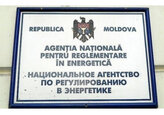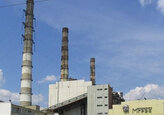
Against the background of the discussion on Friday in the Moldovan parliament of amendments to the law on the market of petroleum products, fuel prices increased by 4-5%.
The bill assumes that the National Agency for Energy Regulation will set maximum retail prices once a month (a similar practice existed in 2016-2019, when NAER installed a ceiling once every two weeks. One of the main reasons for revising the law is, according to the initiators of changes, “unjustified growth” of prices for oil products in Moldova. In particular, over the past four months (November 2020 - March 2021) in Moldova, fuel prices in several stages increased by 11% (gasoline) and by 19% (diesel fuel). At the same time, over the same period, the price of gasoline on the PLATTS FOB MED market increased by 72% (from $ 377 per tonne in November 2020 to $ 650 in mid-March 2021. The price of diesel increased by 52% (from $ 372 to $ 541 per tonne, respectively.) Global trends in the oil and oil products market are actively discussed in the world media. The day before, the mass media of different countries published statements by the heads of major world oil companies that a shortage of oil and oil products is expected in the world, which will provoke a sharp rise in prices. The main reason for this is the fact that during the pandemic, oil producers in the world practically did not make investments and will not be able to quickly satisfy the coming sharp demand: “The current trend shown by the world market is a clear guideline that now prices have not only stabilized, but they also grow. " The experts, whose opinion the InfoMarket correspondents were interested in, note that the rise in prices is inevitable in all countries - even in those where oil is extracted and refined. Prices are determined by supply and demand, since in almost all countries with market economies, prices for petroleum products are not regulated by the state. And the attempts of the country, which is 100% dependent on the import of petroleum products, to legislatively influence the formation of prices for them, especially against the background of global trends in the growth of demand, may lead to the fact that the import and sale of fuel will become economically unprofitable for operators - commercial enterprises. As a consequence, this can lead to a shortage of petroleum products in the domestic market. // 12.03.2021 - InfoMarket






